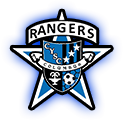Concussion Facts
A Fact Sheet for Athletes on concussions in Youth sports
CONCUSSION FACTS:
A concussion is a brain injury that affects how your brain works.
- A concussion is caused by a bump, blow, or jolt to the head or body.
- A concussion can happen even if you haven't been knocked out.
- If you think you have a concussion, you should not return to play on the day of the injury and not until a health care professional says you are ok to return to play.
CONCUSSION SIGNS AND SYMPTOMS:
Concussion symptoms differ with each person and each injury, and they may not be noticeable for hours or days. Common symptoms include:
- Headache
- Confusion
- Difficulty remembering or paying attention
- Balance problems or dizziness
- Feeling sluggish, hazy, foggy, or groggy
- Feeling irritable, more emotional, or "down"
- Nausea or vomiting
- Bothered by light or noise
- Double or blurry vision
- Slowed reaction time
- Sleep problems
- Loss of consciousness
During recovery, exercising or activities that involve a lot of concentration (such as studying, working on the computer, or playing video games) may cause concussion symptoms to reappear or get worse.
WHAT SHOULD I DO IF I THINK I HAVE A CONCUSSION?
- DON'T HIDE IT. REPORT IT. Ignoring your symptoms and trying to "tough it out" often makes symptoms worse. Tell your coach, parent, and athletic trainer if you think you or one of your teammates may have a concussion. Don't let anyone pressure you into continuing to practice or play with a concussion.
- GET CHECKED OUT. Only a health care professional can tell if you have a concussion and when it's OK to return to play. Sports have injury timeouts and player substitutions so that you can get checked out and the team can perform at its best. The sooner you get checked out, the sooner you may be able to safely return to play.
- TAKE CARE OF YOUR BRAIN. A concussion can affect your ability to do schoolwork and other activities. Most athletes with a concussion get better and return to sports, but it is important to rest and give your brain time to heal. A repeat concussion that occurs while your brain is still healing can cause long-term problems that may change your life forever.
HOW CAN I HELP PREVENT A CONCUSSION?
Every sport is different, but there are steps you can take to protect yourself.
- Follow your coach's rules for safety and the rules of the sport.
- Practice good sportsmanship at all times.
*Information obtained from the Department of Health & Human Services USA (CDC)*




